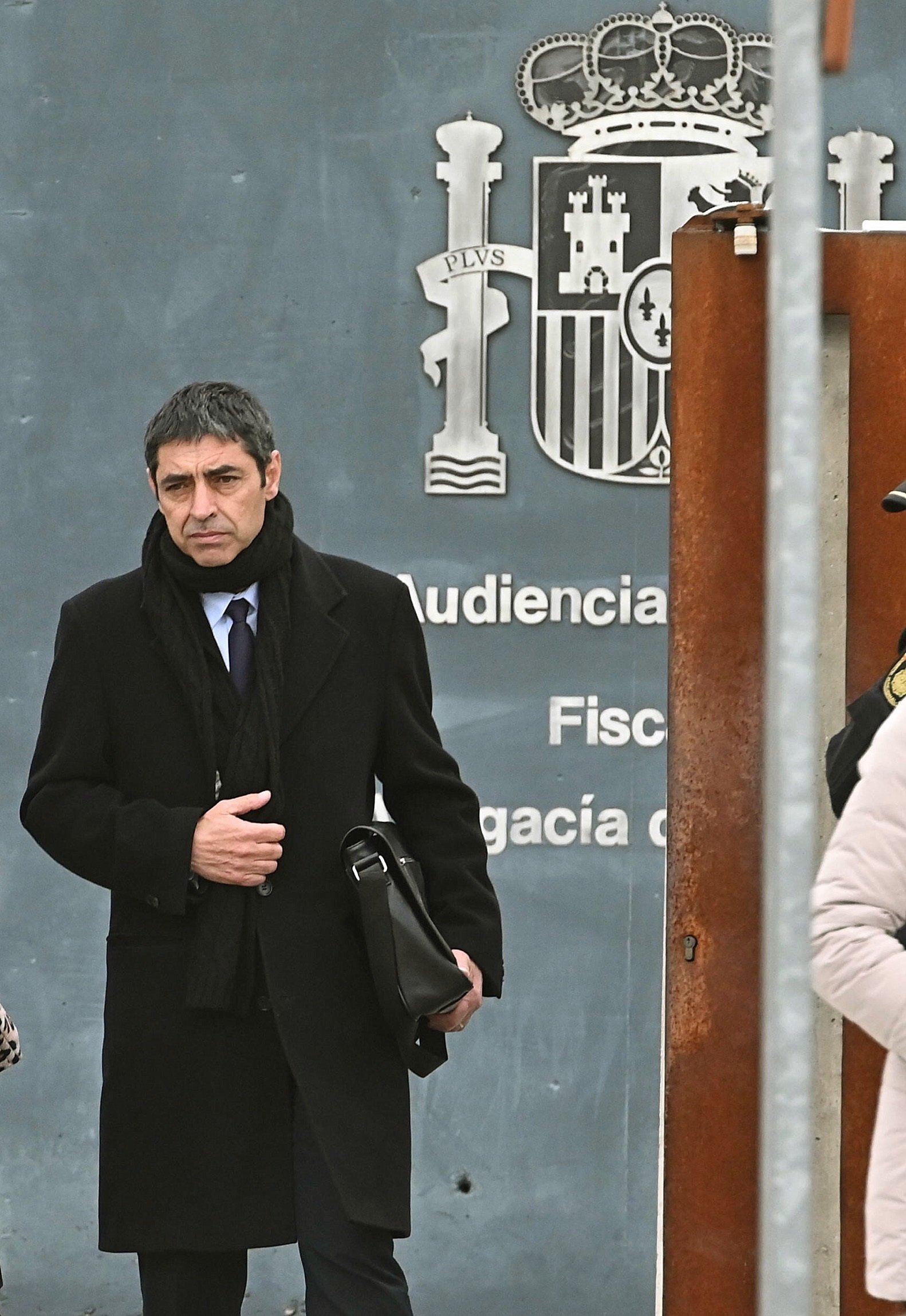A morning of revelations from Josep Lluís Trapero, on trial for rebellion at Spain's National Audience court. In the last part of his declaration, the former chief of the Mossos d'Esquadra police explained that the Catalan government had been tempted to make a political move: that he had planned to hold a press conference to make clear his disagreement with the position taken by Carles Puigdemont's Catalan government as it moved forward with its plans for the 2017 independence referendum. And in addition, he told the court today that he offered to personally be the one to arrest the Catalan president, had it been ordered.
"Our conclusion was that, if they went ahead with it, this would be a very serious action and we would receive this order. That's why we wanted to start working on an operation and I gave a few indications," said Josep Lluís Trapero, who put on the table the possibility that he himself would take responsibility for arresting Carles Puigdemont, "as the head of the police force."
But his senior Mossos colleagues Ferran López and Joan Carles Molinero did not go along with the idea. They believed that Trapero had to carry on in a coordination role and they offered to be the ones who would arrest the president. They also agreed, according to the chief, that the "highest ranking officers in the force" would be the ones to take on the task of arresting the Catalan ministers.

Given the possibility that there might have been a mass occupation of the Catalan Parliament by people in an attempt to prevent such arrests, and in order to maintain "secrecy" over this whole plan so that "it did not reach the affected people", they agreed to appoint Ferran López as an "interlocutor" with the judicial body that would handle the arrests. Two days later, this commissioner, who in the end replaced Trapero at the head of the Mossos after the Madrid government's imposition of direct rule, reported that the operation was ready to go.
"Dissatisfied and frustrated"
Josep Lluís Trapero also revealed today that, with his closest cofidants in the force, he planned to hold a press conference to mark his distance from the Catalan government, just two days before the 1st October 2017 referendum.
"We considered the possibility of holding a press conference. We were dissatisfied and frustrated about how the meeting had gone," Trapero explained, referring to the September 28th meeting they had held with several members of the Catalan executive, including president Carles Puigdemont and vice president Oriol Junqueras. At this meeting they proposed suspending the referendum due to the risk of law and order problems. "We saw the risk of public order and safety problems if the vote went ahead," he said.
But the Government ignored him. And from here came the proposal, first, to hold a press conference, and then, make a statement. Those involved in this idea were Chief Trapero and his commissioners Ferran López, Joan Carles Molinero and Emili Quevedo. Quevedo was responsible for drafting the statement, but at the last minute the commissioners backed off. "Something I regret now," said Trapero.
The trial continues with the declarations from the other senior figures in the Catalan police force who are also on trial: Superintendent Teresa Laplana (who also testified on Wednesday), and Catalan interior ministry officials César Puig and Pere Soler.

